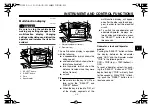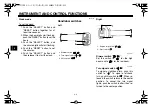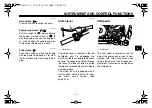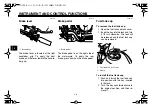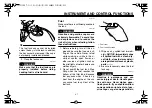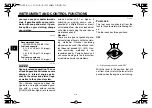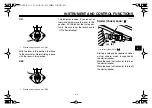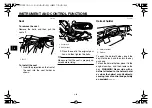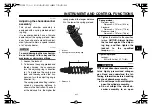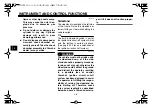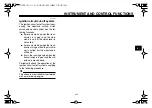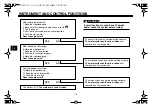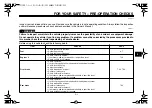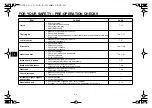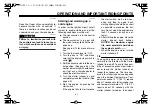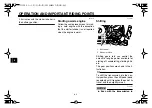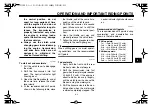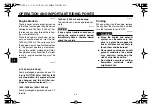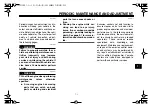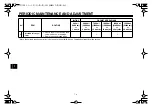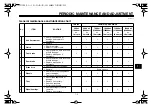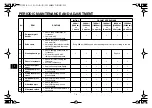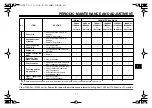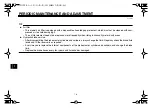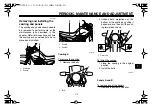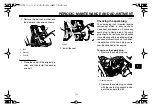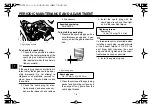
6-1
2
3
4
5
6
7
8
9
OPERATION AND IMPORTANT RIDING POINTS
EAU15951
Read the Owner’s Manual carefully to
become familiar with all controls. If
there is a control or function you do not
understand, ask your Yamaha dealer.
WARNING
EWA10271
Failure to familiarize yourself with
the controls can lead to loss of con-
trol, which could cause an accident
or injury.
EAU15997
Starting and warming up a
cold engine
In order for the ignition circuit cut-off
system to enable starting, one of the
following conditions must be met:
●
The transmission is in the neutral
position.
●
The transmission is in gear with
the clutch lever pulled and the sid-
estand up.
See page 4-13 for more informa-
tion.
1. Turn the fuel cock lever to “ON”.
2. Turn the key to “ON” and make
sure that the engine stop switch is
set to “
”.
3. Shift the transmission into the neu-
tral position. (See page 6-2.) The
neutral indicator light should come
on. If not, ask a Yamaha dealer to
check the electrical circuit.
4. Turn the starter (choke) on and
completely close the throttle. (See
page 4-9.)
5. Start the engine by pushing the
start switch.
If the engine fails to start, release
the start switch, wait a few sec-
onds, and then try again. Each
starting attempt should be as short
as possible to preserve the bat-
tery. Do not crank the engine more
than 10 seconds on any one at-
tempt.
6. After starting the engine, move the
starter (choke) back halfway.
NOTICE:
For maximum engine
life, never accelerate hard when
the engine is cold!
[ECA11041]
7. When the engine is warm, turn the
starter (choke) off.
TIP
The engine is warm when it responds
normally to the throttle with the starter
(choke) turned off. To avoid the possi-
bility of excessive exhaust emissions,
never leave the starter (choke) on
longer than necessary. The time nec-
essary for starter (choke) use depends
upon the ambient temperature. Tem-
peratures above 10 °C (50 °F) require
about 7 seconds of starter (choke) use
and temperatures below 10 °C (50 °F)
require about 35 seconds with the
starter (choke) turned on, then about

